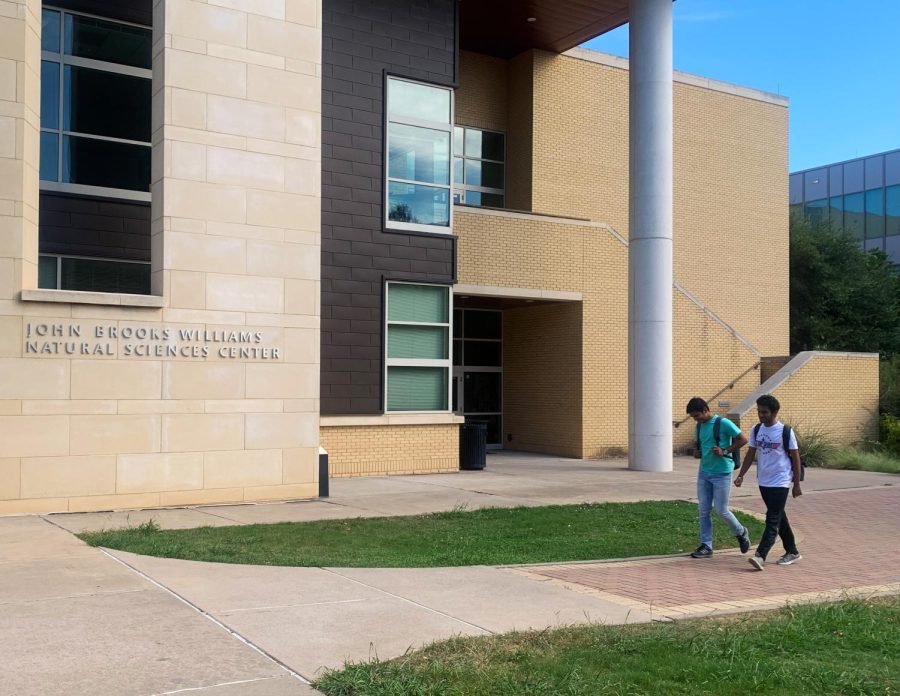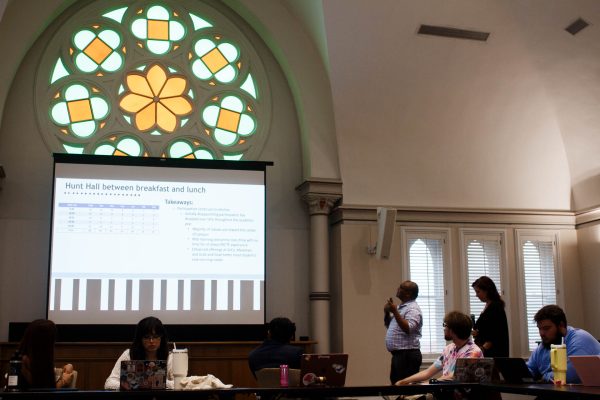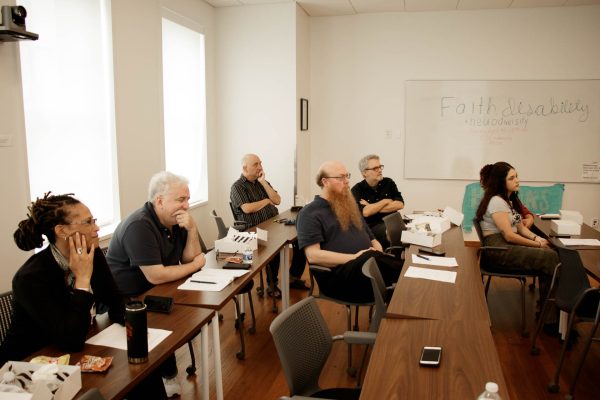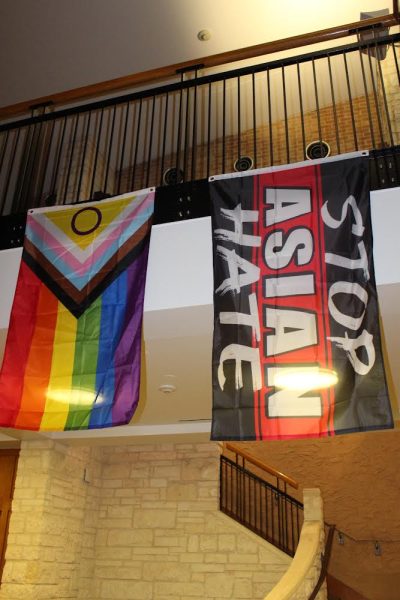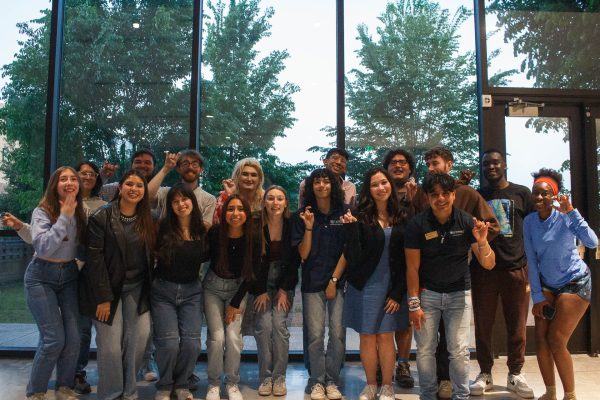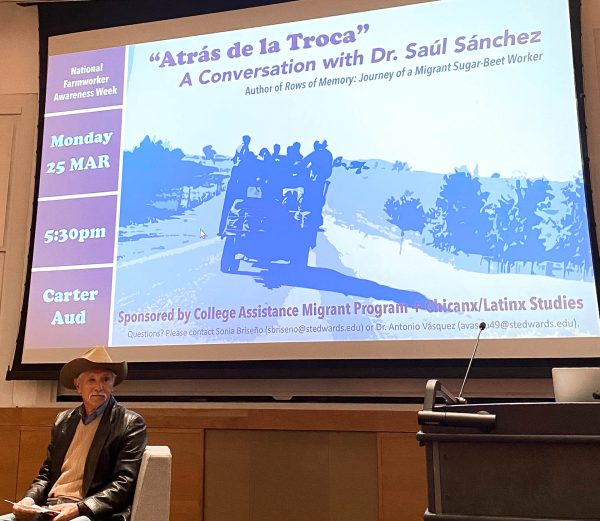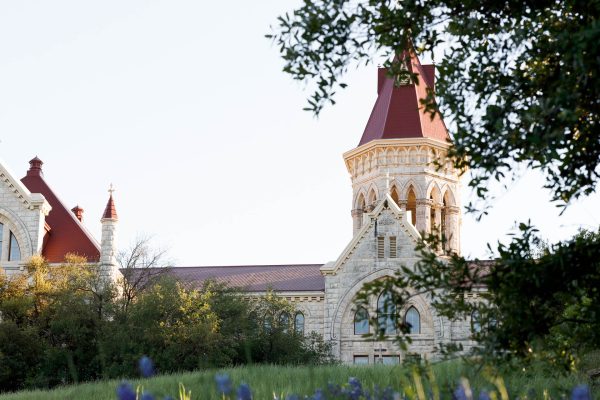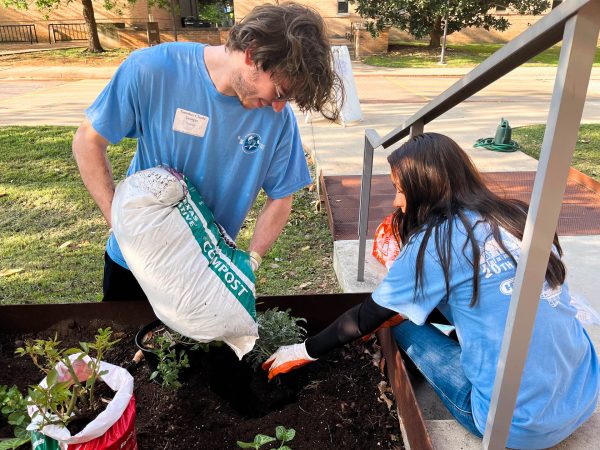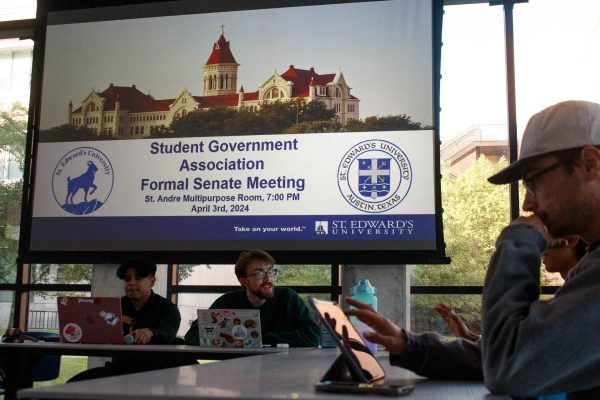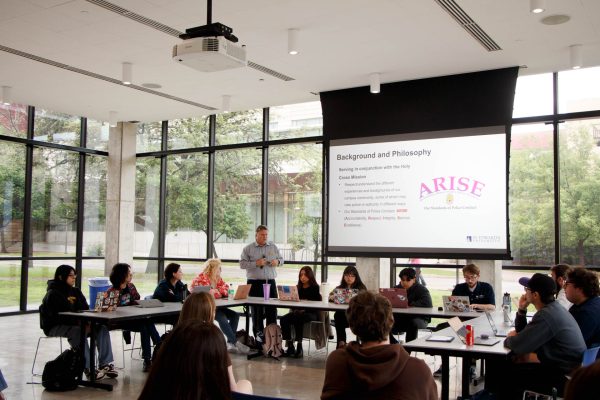Institutional reconstructions leave interdisciplinary English majors feeling forgotten
Claire Lawrence / Hilltop Views
The Natural Sciences Center is home to most Science, Technology, Engineering and Mathematics majors. A physical location for the newest school is still unknown.
Updated Oct. 13, 2022
A new School of Health Sciences is in the works, according to the St. Edward’s University 2027 Strategic Plan. This School of Health Sciences will begin with a focus on nursing programs, with the goal of creating the first nursing cohort in the next year.
“I think the opportunity to offer nursing as a major here on campus will make us more attractive to new students, initially the transfer students, but soon thereafter, when we have the full BSN major for new first year students,” Vice President for Academic Affairs Glenda Ballard said.
For some, the decision to create a School of Health Sciences seems like a net positive for the university; however, one group of the St. Edward’s population feels uniquely hurt by the decision: interdisciplinary English majors.
The School of Human Development and Education was eliminated in May of 2020. Those majoring in interdisciplinary English with an interest in education could continue to complete their degrees, but no new majors were admitted to the program in the following academic year. The minor remained, but all other education programs were cut.
“Hearing the news that the school of education was closing down was an overwhelming experience,” senior Kara Boykin-Rodgers said. “I was scared I was going to have to change my major to something I wasn’t passionate about in order to stay a St. Edward’s student.”
Interdisciplinary English majors have continued their classes on a skeleton crew, mostly online.
“This year is my first year since freshman year that I have had in person education courses” senior Maggie Van Dyne said. “I have known I wanted to be a teacher ever since I was in Kindergarten and I have not let anyone or anything get in the way of my goals.”
Boykin-Rodgers had to complete three online courses this summer in order to stay on track with her current degree plan, and said that the challenges presented in the major have created a tight knit community. These changes, however, haven’t shaken many students.
“As the last future educators on campus, we’ve been able to bond through our mutual experiences,” she said.
The class of 2023 is the last class of interdisciplinary English majors at St. Edward’s. As the final phase out of the department occurs, students have mixed feelings about the creation of the School of Health Sciences.
“It makes me wonder if St. Edward’s could have taken less drastic measures before closing down the School of Education,” Boykin-Rodgers said.
While the School of Health Sciences is a boon for St. Edward’s future nursing students, they must come face to face with the reality. In prioritizing a future BSN program, they have deprioritized the last of their education students.
“Although I think the new School of Health Sciences will bring in many new faces to St. Edward’s, I wish that SEU admin would have reinstated the education department,” Van Dyne said.
Those wishing to become a certified teacher can still do so at St. Edward’s through a minor in Teacher Education, according to Associate Professor of Secondary Education Steven Fletcher. Students enrolled in the minor can become certified for 7-12 grade levels as long as they are majoring in any of the following: Biology, Biochemistry, Chemistry, Mathematics, History or English.


